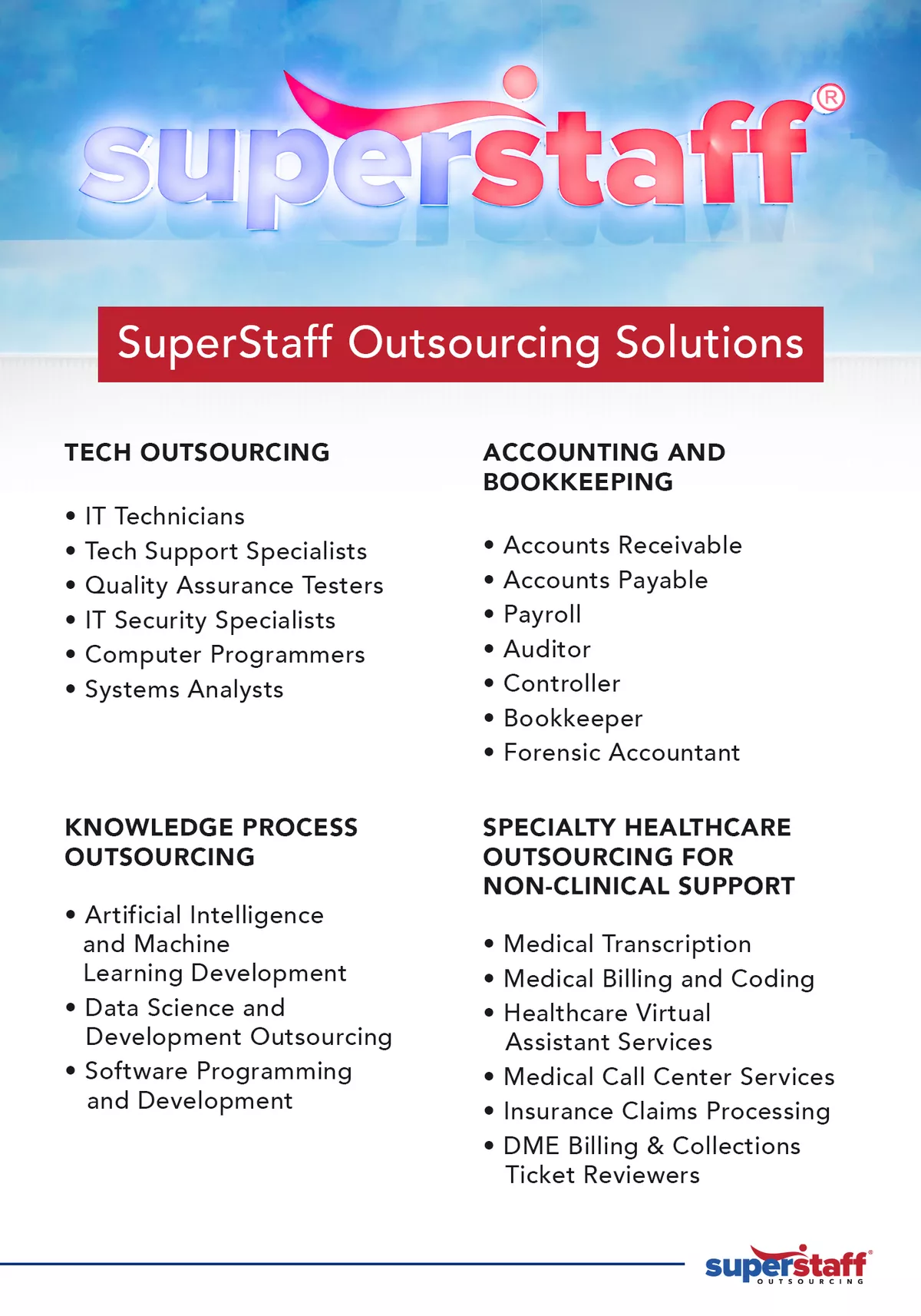
New Zealand’s response to COVID-19 was a success story that earned international acclaim. At the onset of the pandemic, the government stamped out the first wave of the coronavirus by immediately shutting down the border and enforcing one of the most stringent lockdowns in the world. The Land of the White Long Cloud used epidemiology and genomic sequencing to track every case, resulting in very few infections and fewer deaths.
The country’s economic response also received praise. New Zealand had one of the world’s most extensive fiscal support packages per capita, amounting to 4% of their GDP.
While developed nations like the United States grapple with an inevitable recession, New Zealand’s economy is exceeding expectations. It capped off the year with an overall expansion of 0.4%, despite predictions that the economy would shrink by 1.8%.
The country’s economic growth has been slow but remains steady. In 2021, New Zealand’s GDP grew by 5%, and then again by 2.4% in 2022.

State of the New Zealand Labor Market
- The unemployment rate is at a critical low of 3.4%, unchanged from December 2022 – meaning very few people are looking for jobs, despite the growing number of vacancies in the country.
- The country continues to face a loss of working migrants, with a net migration loss of 11,500 people in the second quarter of 2022.
- A vast majority of employers (90%) face difficulties in finding suitable candidates to fill their job openings, while close to 33% have been unable to fill these positions for a duration exceeding six months.
How is the labor market in New Zealand?
With the unemployment rate at a critical low, the country’s labor market is extremely tight. The low unemployment rate means that most formerly unemployed people have already found jobs. Considering that vacancies are still rampant across all sectors and regions, the pool of available workers will no longer be enough to fill the remaining open positions.
3 Key Indicators of New Zealand’s Labor Market
Unemployed
Consider this the narrowest measure. It accounts for all working-age people who are still unemployed and seeking jobs.
Companies cannot rely solely on the small unemployed demographic to fill the labor gap. Some of them are just in between jobs with work already lined up. Others have been out of the workforce so long that their skills and qualifications have become obsolete, making them unfit for employment.
Underemployed
These are part-time workers seeking to take on more hours. Typically, they are young workers in sectors like hospitality and retail who can’t find full-time jobs because of skills mismatch. If the country can provide these people with the proper skills training, they can add 25,000 full-time employees to the job market.
Underutilized
This broadest measure includes both unemployed and underemployed workers. Access to training and education, wage hikes, better welfare, work flexibility, childcare, and family support can help these people seek employment.
These measures are at critically low levels, pointing to a tight job market about to worsen.
Why is there a labor shortage in New Zealand?

Pre-Pandemic Factors
The Big OE
The Big OE, known as Overseas Experience, is an informal rite of passage unique to Kiwis. The term was coined to describe a young New Zealanders’ prolonged trip abroad to gain a broader perspective from living overseas.
Since the trips are primarily self-funded, young Kiwis have the liberty of choosing how to spend their OE. Some would take up graduate studies or enroll in student exchange programs. Others would teach English in countries like Japan or South Korea, while some take a gap year to immerse themselves in different cultures.
OE helps in career development and gives Kiwis an edge in applying for jobs, with some companies even considering it a formal qualification.
Diminishing Working Age Population
New Zealand’s working-age population is another factor exacerbating the labor shortage. This demographic has always been a driver of economic growth. But since the 1980s, the working age population in most advanced nations has been steadily dropping.
In 2021, New Zealand logged the smallest increase (13,100) in its working age population since 1999. New Zealand will face slower labor force growth as the baby boomers reach retirement age. By the early 2030s, the median age of New Zealand’s population is projected to be 40 years, a significant jump from 25.6 years in the 1970s.
Post-Pandemic Factors
Brain Drain
After successfully combating COVID-19, New Zealand faces another epidemic – brain drain.
Fifty thousand New Zealanders are expected to leave the country over the year. Authorities say the number could swell up to 125,000 mainly because border closures have kept young Kiwis from traveling overseas for their OE during the pandemic.
As borders gradually reopen, young professionals and graduates are expected to leave the country in droves, fuelling a brain drain. The trend is unfortunate, given more locals are leaving the country than those entering.
High Employee Turnover
New Zealand is also suffering from its version of “The Great Resignation,” the global trend of mass resignation most prevalent in the U.S. A nationwide study, led by Auckland University of Technology (AUT) Business School Professor Jarrod Haar, found that many Kiwi workers are considering throwing in the job towel. The study described workers’ plans to leave their jobs as “turnover intention.”
The study, titled AUT Wellbeing@Work, found:
- The number of employees without intentions of leaving jobs dropped from 19.1% in May 2020 to just 9.2% in April 2021.
- The number of employees most likely to leave their jobs jumped from 34.7% in May 2020 to 46.4% in April 2021.
Career Waka Jumping
Research shows that the reason behind this high turnover is “Career Waka Jumping,” or the rising phenomenon of workers leaving their jobs for better opportunities. According to Beyond Recruitment, keeping talent is significantly harder now than it was before the pandemic.
- 83% of Kiwi employers find it much harder to keep talent now compared to before the pandemic
- Meanwhile, 95% of employers struggle with sourcing talent
Liza Viz, Chief Executive of Beyond Recruitment, said that the labor shortage created a dynamic that allowed employees to find different jobs if they were discontent. After all, the talent war is fierce, and companies will fight even for a single recruit.
Labor Shortage Dims New Zealand’s Vision of Becoming a Digital Nation
As a relatively small nation, countless miles away from large markets, New Zealand’s economy is plagued by the tyranny of distance. Kiwi leaders saw the connectivity afforded by technology as a solution to this.
With the help of technology, companies are capturing new markets overseas and revolutionizing business models. A PwC survey revealed that 60% of global corporate leaders cited digital transformation as their most significant growth driver in 2022. Experts project that by 2023 businesses will funnel $2.3 trillion worth of investments toward digital transformation.
New Zealand is already ahead of the curve in this respect. In 2016, it announced its plans to become a digital nation. At the time, the tech sector was already a booming part of the country’s economy. It was the most important driver of growth.
New Zealand Tech Sector Highlights in 2015
- Tech was the country’s third-largest export sector.
- The country had 28,749 tech firms.
- The sector employed 98,911 people, about 5% of the country’s workforce. It also hired an additional 20,154 tech workers in other sectors.
- The tech sector had higher pay and higher qualified employees than other industries.
Unfortunately, the country’s severe skills shortage threatens to slow New Zealand’s progress.
Two years after lockdown measures and closed borders brought travel to a screeching halt, border restrictions are still choking the country’s migration. Businesses critical of the government’s post-COVID entry requirements warn that if it doesn’t ease back its restrictions, New Zealand could be staring down massive economic turmoil.
Some 5,000 tech professionals have immigrated to the country since 2016. But because of the border lockdowns, New Zealand’s over-reliance on immigration now stands in the way.
Digital Skills Shortage due to New Zealand Labor Shortage

The impact of the labor shortage is felt across all industries. But New Zealand’s tech industry is having it worse than other sectors.
For instance, PikPok, a game developer famous for its tongue-in-cheek mobile games, was forced to expand to South America because New Zealand could no longer provide them with needed talent.
PikPok is not alone. The New Zealand Game Developers Association reported that more than half of the country’s 12 largest studios are considering offshoring to Australia.
The alarming tech talent shortage prompted business leaders to call for a more flexible immigration policy. As a response, the government announced a quick fix – border exemptions for 600 specialist tech workers in software development, security specialists, ICT managers, and multimedia specialists.
However, the border exemptions are not enough for PikPok Chief Executive Mario Wyands. He argued that the program is only a temporary bandaid and that the government should focus instead on reforming the country’s immigration policies.
Skills Gap
While it’s true that the talent shortage reached a critical point during the pandemic, studies are calling attention to the root cause – the country’s failure to invest in tech education. The Global Digital Skills Index, where New Zealand only scored 28 out of a hundred against a global average of 33, clearly illustrates the widening skills gap.
New Zealand Workplace Digital Skills Readiness
- Only 36% of New Zealand workers felt very prepared with workplace digital skills
- Only 24% of New Zealand workers felt powerfully equipped with resources to learn digital skills
A study by OECD pointed out that while the country has made significant progress in some areas of digitalization, New Zealand has a narrowing domestic pipeline of talents with advanced tech skills. It cited students’ poor math and science proficiency as one of the reasons.
Skills Mismatch
A paper published by Digital Skills Forum, a coalition of bodies identifying tech and digital skills issues, concluded the country is experiencing a skills mismatch.
The paper, in collaboration with New Zealand Tech Alliance, noted that in 2019, 4,462 new tech jobs were created. The IT talent pool that year, which included tech graduates (5,745), reskilled employees (200), and migrants (3,863), was at 9,800, far exceeding the number of new jobs available.
However, the research highlighted one key finding: Most vacancies are for experienced workers. With hardly any entry-level positions available, the country faces an oversupply of underskilled graduates and a shortage of experienced workers.
Addressing the Digital Skills Shortage
New Zealand’s digital sector is currently lagging behind its peers. Technology Users Association ranked the country 42nd for access to technology. The same report showed firms face overwhelming shortages in hardware, tech products, and, most importantly, digitally skilled workers.
Retraining and Upskilling
The reason behind the talent shortage is the dwindling number of students learning digital skills, the dire need for digital skills in the job market, and the lack of focus on upskilling. Previous research by Amazon Web Services (AWS) supported these conclusions.
- Only 25% of New Zealand businesses train their employees in digital skills.
- More than 1 million workers will require digital education over the next year.
- More than 650,000 workers already have skills but need to be retrained.
- 350,000 have no digital skills at all.
Tech companies find recruiting new talents easier than developing the skills of their existing employees and so as new hires. The lack of industry training is already fueling a high turnover rate.
When companies don’t offer training, employees believe that their employers are unwilling to give them the chance to take on new roles. Hence, employees are forced to switch jobs for better opportunities.
This misconception calls for system-wide reform. The government is already taking measures to minimize the gap through an industry transformation plan focusing on skills and talent development. It will adopt a new reskilling and upskilling framework to help ease acute digital skills shortages. However, the burden should not fall solely on the government. Businesses also need to pull all the stops.
Developing a Training Program
Upskilling is necessary for companies to keep pace with the changing tech landscape.
Tech companies should first identify their skills gaps. While filling these gaps, they can also develop general learning programs to keep pace as more tech innovations are rolled out.
Managers can develop internal training programs with the help of outside industry experts. Employers also have the option of enrolling their employees in external training programs. They can also take advantage of government measures such as fees-free training and apprenticeship funds.
Ultimately, a company’s end goal must be to curb turnover rates by establishing clearer pathways for their employees’ career growth.
Recruiting for Digital Skills
The fast-paced digitalization of services and the cloud migration of companies are revving up the competition for digital skills. TUANZ’s recent Digital Priorities report revealed that demand for digital skills is among the top priorities of corporate leaders in New Zealand.
Beyond Recruitment found that the country’s hiring problem has only gotten worse. The number of employers identifying recruitment as their biggest talent issue rose from 46% in 2021 to 60% this year. The study also revealed that attracting talent (16%) has surpassed training talent as the second most significant problem in 2022.
Rethinking Hiring Culture
Headlines across countries speak of the dire need of workers. Recruiters must think outside the box to win the tough talent wars. They aren’t just competing against each other but against the thousands of international enterprises as well.
Flexibility is the dominant theme to achieve strategic recruitment or talent acquisition. New Zealand businesses must take advantage of a strategy that has long been effective for the country: offshoring.
Recent reports show that offshoring is becoming more popular in the country. BusinessNZ, the country’s largest enterprise advocacy group, identified the Philippines as the country from which New Zealand tech firms hire.
A 2014 Grant Thornton International Business Report (IBR) showed that as early as 2014, over half of New Zealand businesses (52%) had already offshored business support or at least planned to do so. The study also showed that most of these businesses outsourced the following services:
- IT (77%)
- Taxation (73%)
- Accounting (62%)
- Financial services (35%)
- HR (35%)
The key reason for this vast reliance on outsourcing is the size of most local businesses. The country has predominantly small to medium-sized businesses, making it far too impractical to conduct all their operations in-house.
Tech recruiters could also look into hiring remote workers and freelancers. According to Stats NZ, more than 40% of Kiwis have already done remote work during the local lockdowns. Companies need to push the paradigm further by building an environment that can support a hybrid working model.
Employee Retention
Finding talent is just one aspect of the problem. Studies show that companies are also struggling to keep tech employees. According to the New Zealand Digital Skills Forum, IT professionals have an extremely high annual churn rate. Almost one in five (19%) employees change roles every year.
Competitive wages are no longer enough to keep talent. The workforce expects more from their employers in this cutthroat labor market. Beyond Recruitment’s study revealed what the workforce wants from jobs.
Top Employee Satisfaction Solutions
- Flexible working arrangements (68%)
- Employee assistance programs (64%)
- Health and wellness initiatives (59%)
To stay ahead of the competition, companies need to meet these demands.
How SuperStaff Can Help With New Zealand’s Labor Shortage

SuperStaff is a comprehensive outsourcing solutions provider offering call center services offshore in the Philippines and onshore in the United States. For the past 13 years, we have partnered with clients across the globe ranging from start-ups to Forbes-ranked enterprises.
We help them realize their vision by providing them with technical expertise and remote staffing solutions. Our scalable processes dedicated to elevating customer experience and enhancing revenue growth continue to earn the recognition of several reputable agencies and even our top competitors.
In 2022, Superstaff ranked third in DesignRush’s Top 15 Call Centers and eighth in Outsource Accelerator’s Top 40 BPOs in the Philippines. Our staying power proves our remarkable capabilities of fulfilling volume hiring and specialized staffing needs.
Tech Outsourcing
Leverage the power of tech outsourcing to unlock innovation and efficiency. Partner with SuperStaff to access a pool of skilled tech professionals who stay ahead of the curve with the latest trends and advancements. Our cutting-edge solutions and expertise will elevate your capabilities, allowing you to focus on your core goals.
Experience a surge in productivity as we streamline your processes and enhance your competitive edge.
- IT Technician
Our IT technicians will be responsible for the installation, maintenance, and troubleshooting of computer hardware, software, networks, and related equipment. They will provide technical support to end-users, diagnose and resolve technical issues, and ensure the smooth functioning of IT infrastructure.
- Support Specialist
SuperStaff’s support specialists will assist users with technical issues, often through remote or on-site support. They will also address inquiries, troubleshoot problems, and guide users in resolving issues related to software, hardware, and IT services.
- Quality Assurance Tester
Our Quality Assurance (QA) testers will ensure the quality and functionality of software applications or systems before they are released. They will also conduct various tests to identify bugs, glitches, or inconsistencies and work closely with developers to rectify issues.
- IT Security Specialist
SuperStaff’s IT security specialists focus on safeguarding your digital assets and sensitive information from cyber threats. They will develop and implement security protocols, monitor for potential vulnerabilities, respond to security breaches, and ensure compliance with data protection regulations.
- Computer Programmer
Our highly-skilled computer programmers write, test, and maintain code to create software applications, websites, and other digital solutions. They are skilled in programming languages and collaborate with software engineers and developers to bring concepts to life.
- Systems Analyst
SuperStaff can also provide you with systems analysts who will critically analyze your IT systems and processes to identify inefficiencies and areas for improvement. They will gather requirements, design solutions, and recommend technology enhancements to optimize your operations.
Accounting and Bookkeeping
Partnering with SuperStaff empowers your business with a team of top-tier professionals well-versed in the latest accounting regulations, tax laws, and best practices. Our experts drive financial growth by leveraging cutting-edge software and technology, enhancing accuracy, and providing valuable insights about your bottom line. Through financial outsourcing you can embrace flexibility while ensuring your readiness to keep pace with changing demands.
- Accounts Receivable
We will manage the process of invoicing customers, tracking payments, and following up on outstanding invoices. This service ensures timely collection of funds owed to the company, improving cash flow and reducing the risk of bad debts.
- Accounts Payable
We will handle your outgoing payments, including vendor invoices, expense reimbursements, and other financial obligations to streamline payment processes and ensure accurate record-keeping, enabling you to take advantage of early payment discounts.
- Payroll
We will manage employee compensation, including wages, taxes, benefits, and deductions to ensure accurate and timely payment for employees while also handling payroll tax compliance and reporting.
- Auditor
We will thoroughly review your financial statements, internal controls, and overall financial practices to provide you with an accurate, independent assessment of your financial health and compliance with relevant regulations.
- Controller
We will oversee your accounting operations, financial reporting, and internal controls, providing you with experienced financial leadership and expertise without the full cost of hiring a high-level executive.
- Bookkeeping
We will record and organize transactions such as purchases, sales, receipts, and payments, ensuring accurate and up-to-date financial records for informed decision-making and compliance.
- Forensic Accountant
We will give you access to a team of forensic accountants who are specialized professionals trained to investigate financial discrepancies, fraud, and financial misconduct. Our goal is to help uncover irregularities, provide expert witness testimony in legal proceedings, and support litigation efforts.
Knowledge Process Outsourcing
SuperStaff designs innovative and scalable knowledge process outsourcing (KPO) solutions for businesses needing data-driven and knowledge-intensive talents. We seek candidates with superior niche skills in programming, healthcare, and data science who will drive growth and innovation for your business.
Our cost-effective KPO services enable you to channel your savings toward more profitable ventures. We can help you keep pace with the global market’s rapid evolution with our potent combination of digital solutions and human cognitive abilities. We also employ the latest international security trends to ensure that your data is secure from breaches and unauthorized access.
Full Suite of SuperStaff’s KPO solutions
- Data Science and Development Outsourcing
Data is reshaping the world as we know it. In 2020, the World Economic Forum estimated that bytes might be 40 times more than the actual count of stars in the observable universe. Whether it’s performance management or market research, data is at the core of every value chain, providing insight into a company’s stability and growth potential.
At SuperStaff, we help our clients maximize this data-driven economy by translating complex data into actionable insights to help them navigate market trends and demands.
Our company boasts of an innovative recruitment approach that enables us to tap passionate data science professionals with a high level of technical and problem-solving skills, then develop them to their fullest potential.
We leverage this deep pool of expert talent and the latest intelligence software to provide businesses access to sophisticated analytics tools without expending their resources.
SuperStaff also helps businesses capture new markets and increase efficiency by predicting consumer behavior, understanding customer sentiments, and maximizing revenue-growing opportunities.
- Programming and Development
Businesses increasingly depend on software to stay ahead of the competition in this new age of automation.
With a decade of success, SuperStaff has already developed an algorithm for success that enables our clients to meet their full growth potential through software development.
Our programming outsourcing solutions help achieve maximum efficiency in all business aspects. We combine the most innovative minds with the latest cutting-edge technologies to solve complex problems, automate processes, and guarantee success.
SuperStaff has a deep pool of front-end and back-end specialists with advanced training and specialized skills. You will get to work with our team of experienced data scientists, designers, web developers, and programmers proficient in various languages.
- Legal Process Outsourcing
The legal industry in New Zealand is shrinking at a much faster rate than the rest of the economy. From 2017 to 2022, the legal services market has been declining at an average annual rate of 1.7%. The country’s labor shortage is only making matters worse. Elsewhere in the world, legal professionals are also becoming increasingly digitally adept.
Through SuperStaff, New Zealand can access more than 40,000 high-caliber legal professionals recognized in the Philippines’ Rolls of Attorneys of the Supreme Court.
With our deep understanding of the legal landscape, we can help you maximize in-house productivity while significantly reducing overhead costs. Let SuperStaff handle legal research, legal case brief preparation, and other time-consuming paperwork while your firm focuses on your clients.
- Specialty Healthcare Outsourcing for non-clinical support
Despite its successful pandemic response, New Zealand was still plagued by a severe shortage in healthcare, particularly among nurses and aged care professionals.
The New Zealand Nurses Organization reported that the sector needs at least 4,000 nurses. Meanwhile, the New Zealand Aged Care Association said that even with nurses working double to triple shifts, they were still forced to close down 500 beds since December 2021. Burnout, long work hours, and neglect compelled more healthcare workers to quit.
SuperStaff can empower the New Zealand healthcare sector with non-clinical support as they navigate the shortage. From managing routine administrative tasks to updating large volumes of medical data, we maximize your in-house team’s productivity by delegating non-clinical functions to our outsourcing team.
SuperStaff’s healthcare support specialists can augment your workforce by handling crucial tasks such as claims processing and medical billing. Our 24/7 customer service and technical support practices have been proven to drive customer satisfaction and engagement.
As the outsourcing arm of an industry leader in biopharma for more than a decade, SuperStaff is no stranger to the healthcare industry. We have been applying our extensive knowledge to provide our clients with a framework that will serve as a cornerstone for their growth and development in the dynamic healthcare industry.
Recruitment Process Outsourcing
Hiring and keeping talent becomes even more critical amid New Zealand’s acute labor shortage.
SuperStaff can fill this gap by empowering companies with qualified talents who go above and beyond their duties. Our sourcing team uses data-driven insights to land top talent.
We leverage our deep talent pool and the expertise of our recruitment specialists to expedite the hiring process without compromising quality.
SuperStaff’s hiring approach is anchored on our relationship with our clients. We don’t believe in a cookie-cutter approach, so we tailor our solutions to your needs.
While we rely on tried-and-true business models, we make room for scalability and flexibility. Our customized hiring strategy allows you to source qualified candidates for competitive roles, grow your applicant base, and secure talent across industries and regions.
Our company’s growth amid global disruptions is a testament to our resilience in the competitive talent acquisition landscape.
Navigate the Labor Crunch With SuperStaff
Don’t let the rigid job market get in the way of your potential. Whatever industry you’re in, SuperStaff can design effective outsourcing solutions that will help you realize your goals. Consult with one of our solutions architects today.






